Mark Leibovich Quotes & Sayings
21 most famous Mark Leibovich quotes and sayings (journalist). These are the first 10 quotes we have.
“I always prided myself on being apart from the ruling class. I think it's always important, not just in Washington but in life, to be able to able to balance your sense of belonging with what it's like to be someone who doesn't belong.”
“I don't know if it's because my father's from Argentina, that I'm the son of an immigrant, I don't know if its because I'm Jewish, but I have always been mindful that the best insights occur when you have some kind of an outsider perspective.”
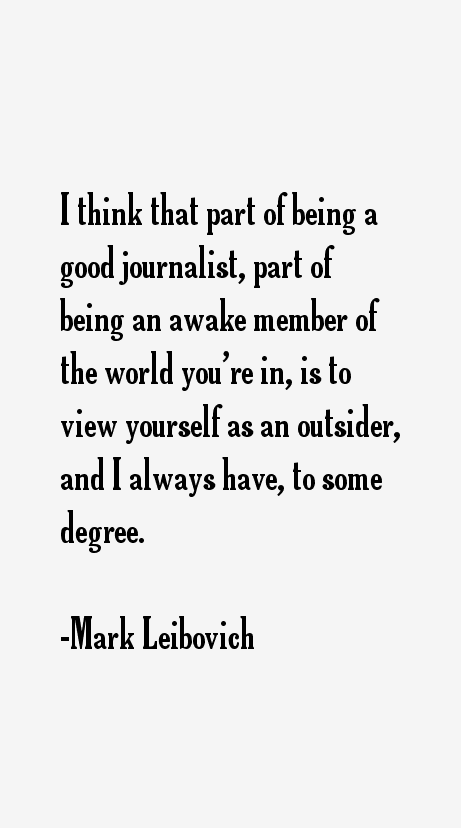
“I think that part of being a good journalist, part of being an awake member of the world you're in, is to view yourself as an outsider, and I always have, to some degree.”
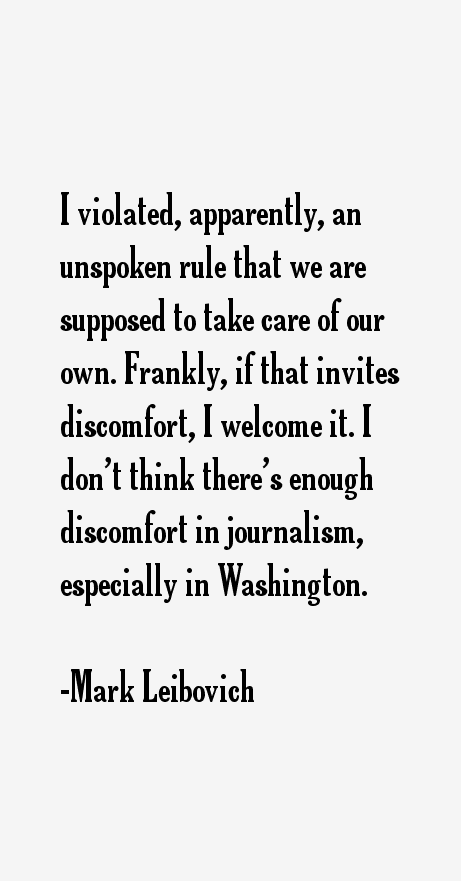
“I violated, apparently, an unspoken rule that we are supposed to take care of our own. Frankly, if that invites discomfort, I welcome it. I don't think there's enough discomfort in journalism, especially in Washington.”

“If you look at issues like immigration, gay marriage, gun regulation - these are all things that probably wouldn't be a source of much discussion at all in D.C., if they weren't sources of self-perpetuation.”
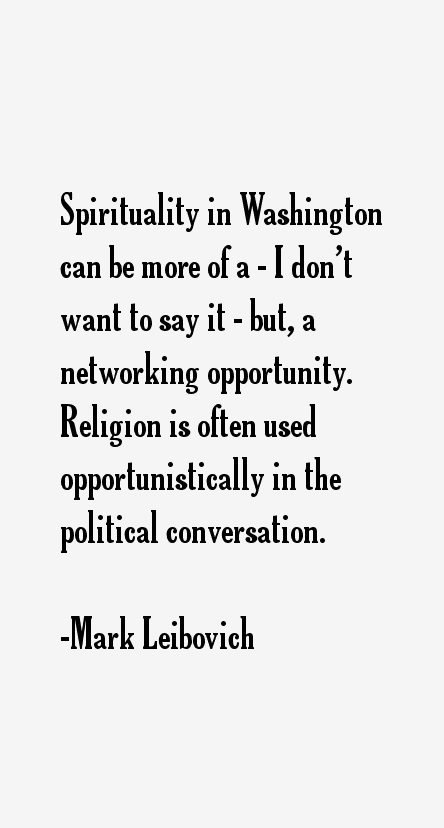
“Spirituality in Washington can be more of a - I don't want to say it - but, a networking opportunity. Religion is often used opportunistically in the political conversation.”
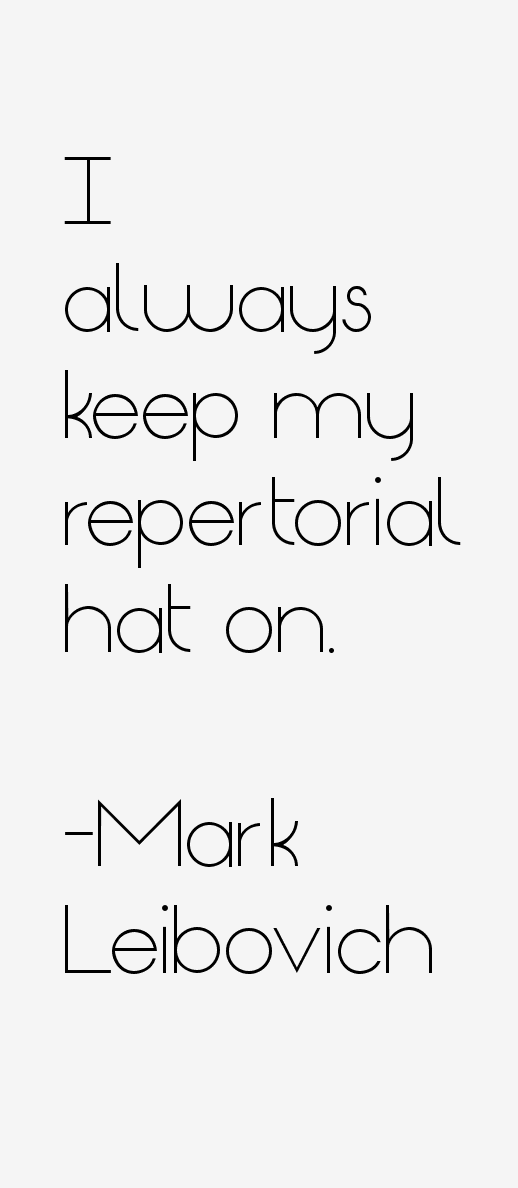
“I always keep my repertorial hat on.”
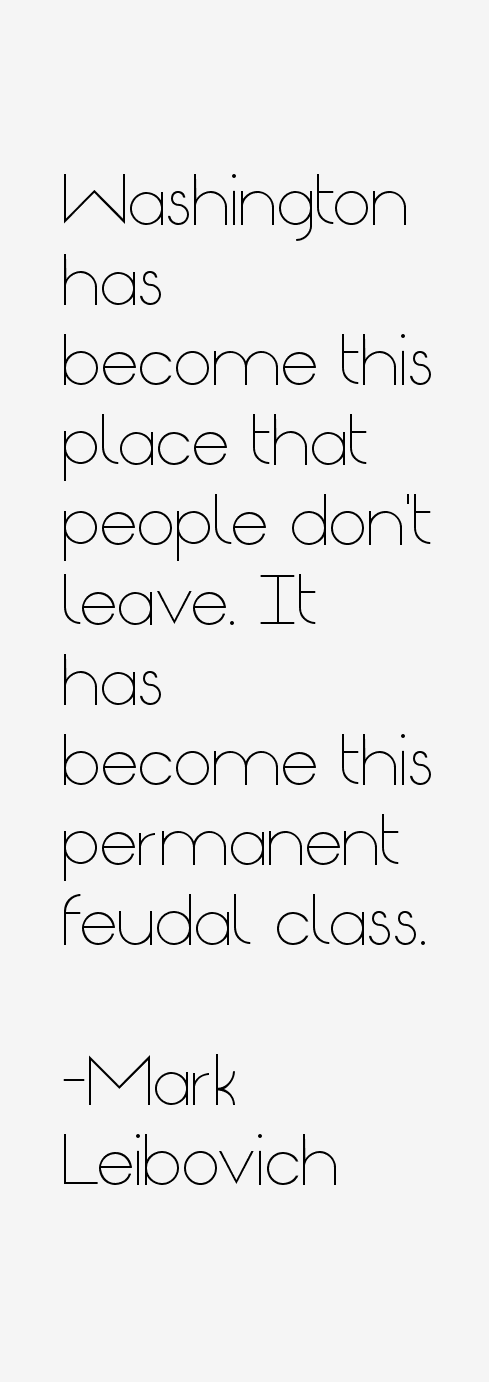
“Washington has become this place that people don't leave. It has become this permanent feudal class.”
“I have been a print reporter my whole career. It's all I ever wanted to be. I specialize in political profiles. I have probably profiled hundreds of people over the years, people in very powerful positions. People don't always like what I write, but most people still talk to me.”
“To cover politics in Washington allows you to live in the very, very wide gap between what the actual truth is, and how people are trying to manipulate the truth. They speak in the language of spin, obsequiousness, obfuscation. The meta of politics is just this endless source of material that can shed light on the psychology of the process.”
Mark Leibovich Quotes Rating
No Ratings Yet
Leave A Comment
























